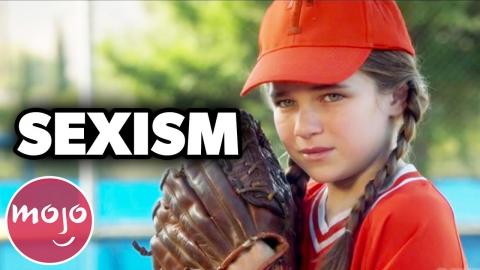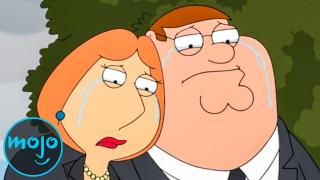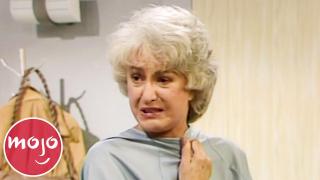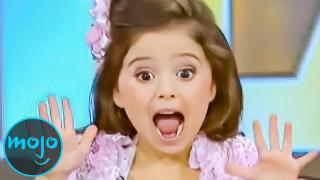Top 10 Times Young Sheldon Tackled Serious Issues

#10: Social Isolation
Throughout “The Big Bang Theory” and “Young Sheldon,” we hear that Sheldon wasn’t exactly the nucleus of the social scene in his youth. In fact, he’s so far from it that he’s more like some distant galaxy humanity has yet to discover. Anyway, for the most part, that doesn’t seem to bother him. However, in the season two finale, when no one shows up to his Nobel Prize announcement party, suddenly the social isolation hits him hard. We’re then shown a montage of his future pals in that present moment. It’s a sweet reminder that as horrible as loneliness can feel, we can always be hopeful for a light at the end of the tunnel.
#9: Natural Disasters
In 2022, CNN reported that Texas is likely to endure about 140 tornadoes per year. Since it’s set in the state, “Young Sheldon” has addressed this natural disaster on more than one occasion. In season one, the family waits out the storm in their bathroom while George and Georgie cover up a window. Indeed, these steps are in line with the CDC’s recommended protocols. Likewise, in season six, George and Missy encounter a tornado warning while driving home. George guides Missy on safety procedures before they leave their car and seek shelter on the side of the road. Season seven delves into the aftermath of such disasters, as Connie deals with the insurance end of things.
#8: Puberty
As the Cooper kids grow up, the series explores the ups and downs of adolescence. While Sheldon grapples with the physical changes puberty brings, Missy and Georgie navigate experiences that are essentially rites of passage for any teenager. As they grow up, their focus changes to matters of the heart, and they even begin dating. Missy also causes quite a stir when she starts asking questions about love and sex during Sunday School. The story delves into the various approaches adults take in addressing the topic. Of course, she and Georgie also face heartache, reminding us that rejection always stings. Meanwhile, Connie proves that it doesn't get any easier with age.
#7: Sexism
In season three, Missy takes an interest in baseball but still has to run her fair share of bases to prove herself. After she convinces George to take her for a tryout, she’s turned away without being given a fair shot, and why? Fortunately, Meemaw bats in her corner and helps her get past that first base. However, Missy then faces prejudice from both her male teammates and her female friends. Even Mary’s dished some harsh words by Brenda Sparks. The final straw is when the opposing team deliberately tries to mess up Missy’s game. Look, we’re not condoning her methods, but we think she got the message across loud and clear.
#6: Family Dynamics
Top 10 Times Family Guy Tackled Serious Issues
In “Young Sheldon,” the Coopers largely come across as a relatable bunch. There’s no shortage of love, but there’s also plenty of friction. George and Mary often find themselves tangled in marital woes, fueled by financial stress and the unique challenges of raising a child like Sheldon. And if you’ve got siblings, you’ll find yourself nodding along to many of the arguments between the Cooper kids, especially the twins. Even Connie, who’s estranged from her other children, adds an intriguing layer to the mix. Most “Young Sheldon” viewers could probably watch at least one episode and see their own family dynamics represented– both the good moments and the tough times.
#5: Teen Parenthood
Top 10 Times Teen Dramas Were Overly Dramatic
In season five, Georgie discovers that Mandy, a woman he’s been dating, is pregnant. This isn't his first brush with teen parenthood, but his first scare turned out to be a false alarm. His response, though not perfect either time, sharply contrasts with his parents, who married because of their own unplanned pregnancy. At no point does Georgie abandon the respective women or tell them what they should do with their bodies. Instead, he takes equal responsibility and, especially with Mandy, supports her all the way. The Coopers also really step up for Mandy when her family fails to do so. Plus, from what we've seen so far, Georgie seems like a pretty good dad.
#4: Mental Wellbeing
Top 10 Sitcoms Got Real About Mental Health
In the Season two finale, Dr. Sturgis has a breakdown triggered by the Nobel Prize announcements. We find out this isn’t the first time it’s happened, and he’s been sent to a facility for treatment. Mary worries that Sheldon, who’s similarly gifted, may also face similar challenges. Meanwhile, her cryptic concerns worry Sheldon. Eventually, they have an open talk about mental health, highlighting the importance of being honest and open about such matters. Even though Sheldon doesn’t face the same challenges as his mentor, he does deal with some debilitating phobias. These fears are caused by traumatic events, such as getting in a car accident and choking on solid food.
#3: Identity Crises
As we’ve mentioned, George and Mary hardly live in pure marital bliss. The series explores the impact these conflicts have on their psyche. For example, George expresses his discontent with how his life has turned out, seemingly setting the foundation for his connection to Brenda Sparks. Similarly, Mary seeks companionship with Pastor Rob, but throughout the series, we also witness her struggle to find herself. She’s so consumed by the demands of family life that she becomes disconnected from the person she was before marriage and motherhood, often grappling to reconnect with herself. This ties into her crises of faith, where she wrestles with the discord between her beliefs and what life lays before her.
#2: Child of Divorce
Top 10 Times Child Stars Lost It on TV
If you’re a child of divorce, you might relate to Sheldon’s intellectual rival, Paige Swanson. At first, she’s a sweet kid who challenges Sheldon. But when her parents split, she has difficulty adjusting. She loses interest in things she once cared about and becomes rebellious. Of course, it doesn’t help that although she and Sheldon lead almost parallel lives, she finds it harder to fit in with her contemporaries. Anyway, Paige’s sharp left turn following her parents’ divorce shows just how deeply unsettling the breakdown of a family can be on a child. We hope she, like many others in her shoes, finds peace knowing it’s not her fault and can find some closure.
#1: Grief
Grief is explored in several ways throughout “Young Sheldon.” Firstly, the series builds up to George’s fate, with adult Sheldon often reflecting on his relationship with his father. Mary and George grieve together when Mary discovers she’s pregnant, only to miscarry soon after. Connie also gives us a rare glimpse at her vulnerable side when she visits her late husband’s grave. Even her sassy spirit can’t hide her sadness or how much she clearly misses him. She even surprises herself with her reaction when Dr. Sturgis puts on Charlie’s jacket at her garage sale. It shows there’s no one right way to grieve; everyone needs to do it on their own terms. Which serious issue do you think “Young Sheldon” handled particularly well? Let us know in the comments





